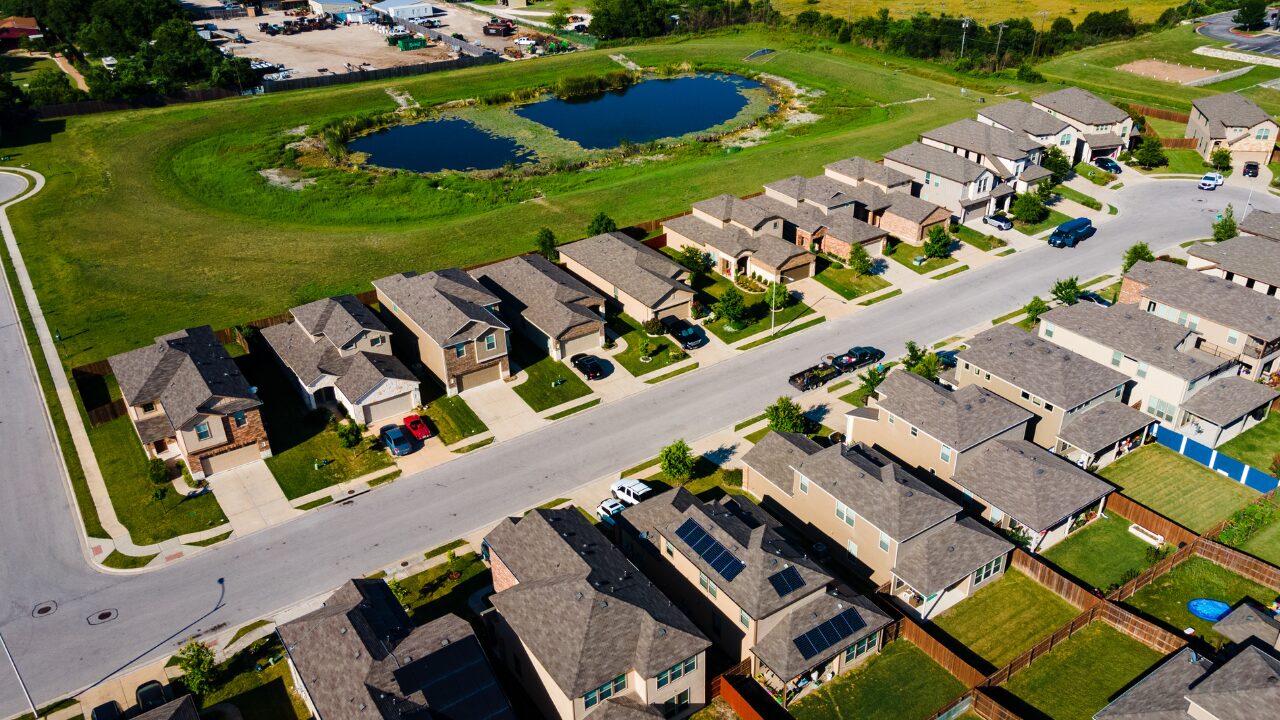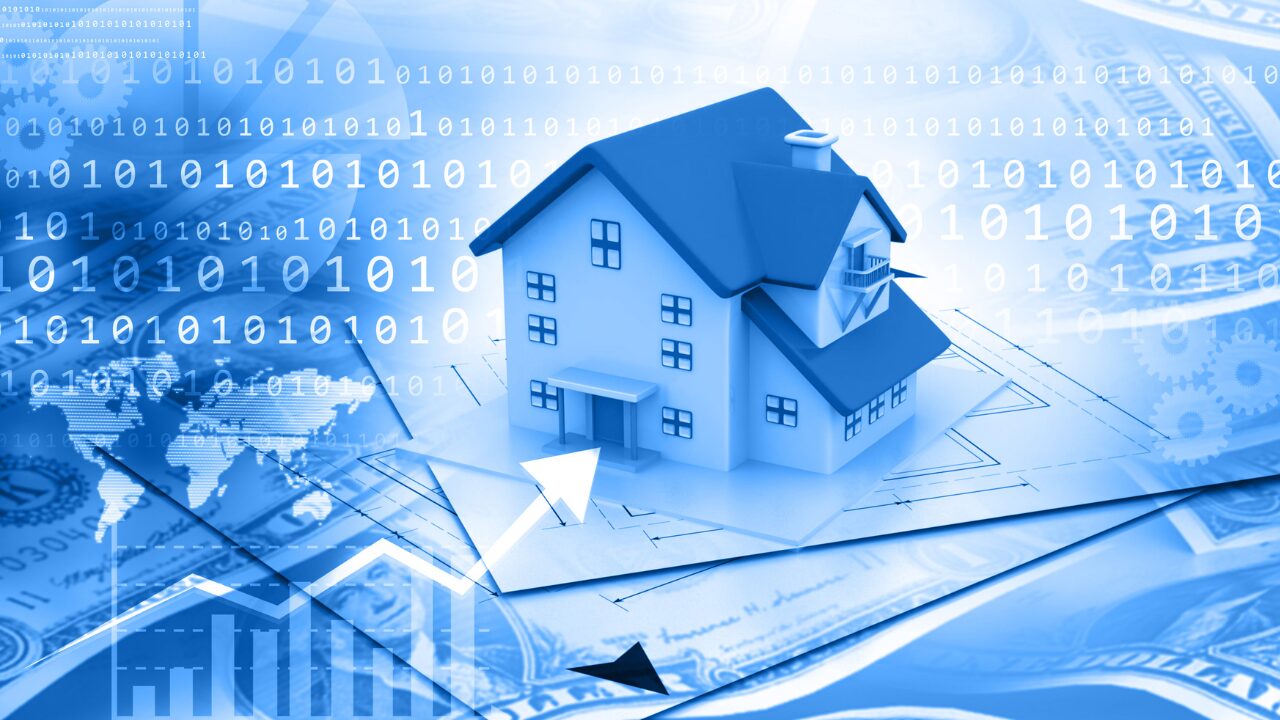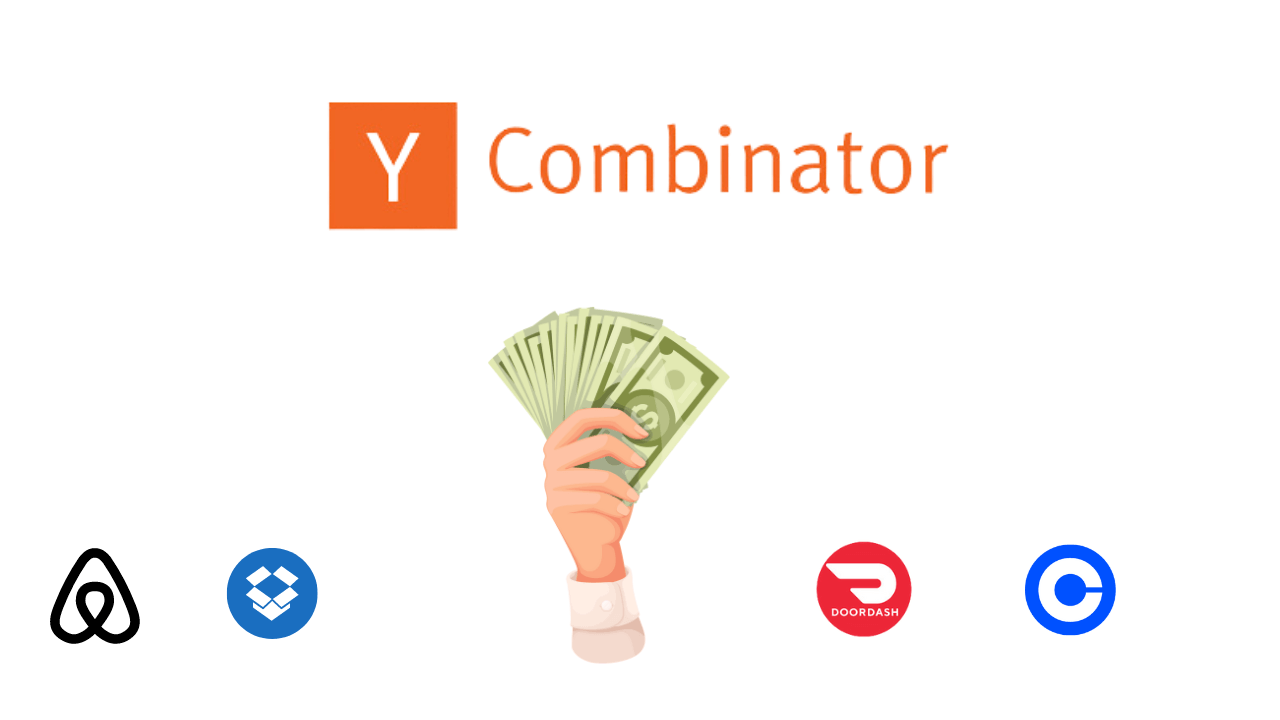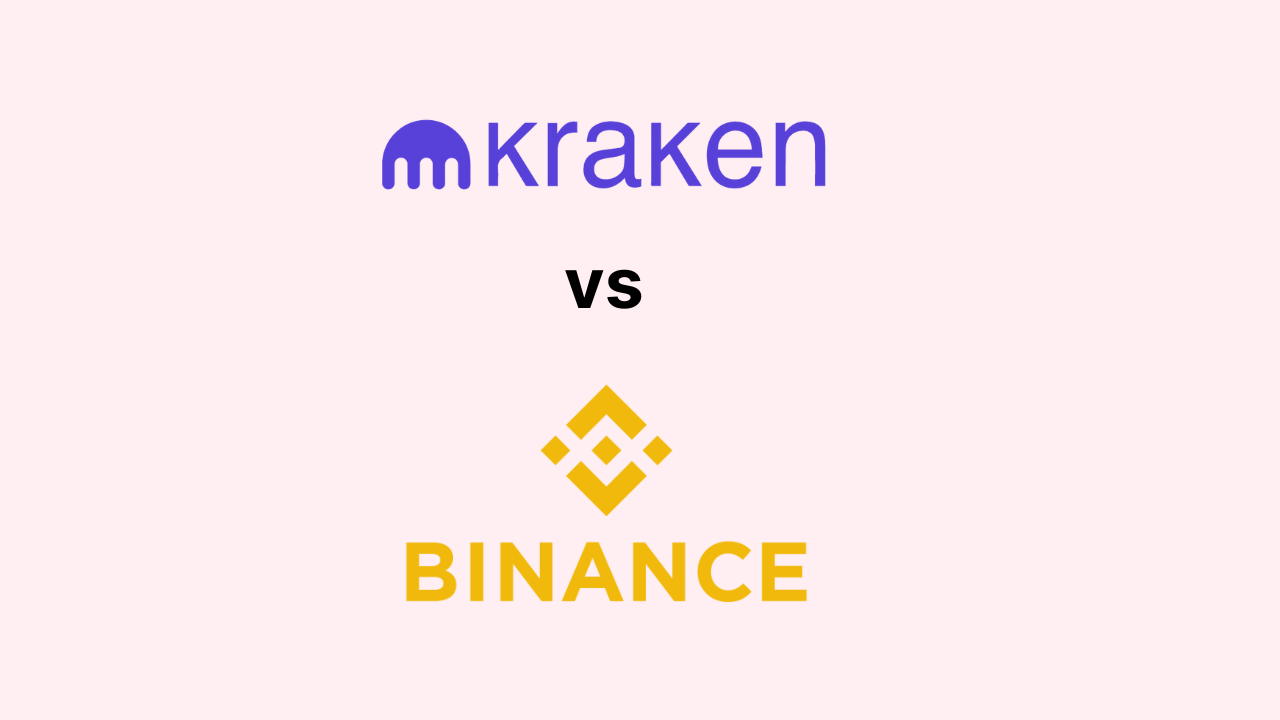Language:
Step-by-Step Guide to Launching a Real Estate DAO
The real estate investment landscape is undergoing a paradigm shift. Decentralized Autonomous Organizations (DAOs) are emerging as a revolutionary force, enabling fractional ownership and democratized access to this traditionally high-barrier market.

The real estate investment landscape is undergoing a paradigm shift. Decentralized Autonomous Organizations (DAOs) are emerging as a revolutionary force, enabling fractional ownership and democratized access to this traditionally high-barrier market.
Stats suggest that there are 1.7 million governance token holders, and 669,000 active voters and proposal makers, out of the top DAOs. Further, the top decentralized autonomous organizations hold $10 billion in value today, in terms of treasury holdings.
Tokenizing real estate properties, managing them in a completely decentralized manner and offering the created tokens to the public – the new form of real estate investment is quick, secure, and transparent.
So, how does a real estate DAO work, and how can one launch it? Can they be run and launched from anywhere and any jurisdiction? How to structure tokenization properly and how to scale a DAO?
This comprehensive guide delves into the step-by-step process of establishing a compliant and successful real estate DAO.
Understanding DAOs and Their Application in Real Estate
DAOs (Decentralized Autonomous Organizations) are a new structure shaking things up in the investment world. The entity is owned and governed by its community, with decisions made democratically through smart contracts (automated agreements) on a blockchain.
While still in their early stages, DAOs are attracting interest for their innovative approach to various endeavors, including real estate.
Make a better investment decision with this detailed blog on DAO and C Corp.
Why Real Estate DAOs?
The answer is simple – Traditionally, real estate offers a secure investment, but transactions can be complex and expensive, limiting its liquidity. Real estate DAOs come in to solve this.
Through tokenization, ownership of a property is divided into digital tokens. These tokens, residing on a blockchain, allow for:
- Fractional ownership: Invest in portions of a property, making high-value assets accessible to a wider range of investors.
- Increased Liquidity: Tokens can be easily traded on a digital marketplace, unlike traditional real estate.
- Transparency: All transactions are recorded on the blockchain, providing clear records for investors.
Real estate DAOs hold immense potential to revolutionize the industry, but it’s crucial to remember that this is a new frontier. Regulations and legal frameworks are still evolving alongside this technology.
Here are some examples of real estate DAOs:
- MetaEstate: This DAO focuses on acquiring virtual land within the metaverse, particularly in popular gaming platforms like The Sandbox and Decentraland. Token holders gain access to exclusive in-game experiences and potential revenue streams.
- Harbor: This DAO facilitates the fractional ownership of real-world properties. Investors can purchase tokens representing a portion of a specific property, gaining voting rights on decisions like renovations or rentals.
- Stardust: This community-driven DAO aims to acquire physical land and build sustainable co-living spaces. Token holders contribute to the decision-making process regarding the location, design, and management of these co-living communities.
Benefits of Launching a Real Estate DAO
Real estate DAOs offer a novel approach to property investment, bringing several advantages to the table:
#1 – Democratized Investment Opportunities
Traditionally, high-value real estate often remains out of reach for smaller investors. Tokenization through DAOs allows individuals to purchase fractions of a property, making ownership accessible to a wider audience. This opens doors for greater participation in the real estate market.
#2 – Enhanced Transparency
Blockchain technology underpins DAOs, ensuring all transactions are recorded immutably. This fosters trust and accountability, as every step of the investment process is visible to token holders.
#3 – Streamlined Decision-Making
Smart contracts automate pre-defined rules and voting mechanisms within a Decentralized Autonomous Organization, or DAO. This eliminates the need for lengthy bureaucratic procedures and empowers token holders to directly participate in crucial decisions regarding the property, such as renovations or tenant selection.
#4 – Potential for Increased Liquidity
Unlike traditional real estate, fractional ownership through tokens allows for easier trading on secondary marketplaces. This increased liquidity offers investors more flexibility in entering and exiting their positions.
#5 – Reduced Administrative Costs
Smart contracts can automate various administrative tasks associated with property management, potentially leading to lower operational costs for the DAO. Smart contracts can streamline rental payments and simplify maintenance and upkeep via pre-defined conditions. As all the records and transactions are stored on the blockchain, the audit trail is transparent and the need for manual record keeping is eliminated.
#6 – Community-Driven Approach
DAOs foster a collaborative environment where token holders actively participate in shaping the future of the property. This collective ownership fosters a sense of community and shared purpose among investors.
Preparation Before Launching a DAO
Launching a successful real estate DAO requires meticulous planning and a comprehensive understanding of the involved elements. Here are some crucial steps to consider:
#1 – Market Research and Feasibility Study
Analyzing the Real Estate Market
Conduct thorough research on the current market trends, including property values, rental yields, and potential risks specific to your target location.
Identifying the Target Market
Clearly define the type of property your DAO will focus on. Will it target commercial properties like office buildings, residential apartments, or something else entirely? Understanding your niche market allows you to tailor your investment strategy and attract relevant investors.
Check out this blog to understand more about setting up a business as a DAO.
#2 – Legal Framework and Compliance
Understanding the Regulatory Environment
Real estate DAOs operate in a nascent space with evolving regulations. Consulting with legal professionals specializing in blockchain and securities law is essential.
Ensuring Compliance with Real Estate and Securities Laws
Tokenization of real estate assets might fall under securities regulations. Failing to comply with these regulations can lead to severe legal consequences.
DAO or DAO LLC – Here is all you need to know about it.
#3 – Technology and Platform Selection
Choosing the Right Blockchain Platform
Different blockchains offer varying features and functionalities. Research and select a platform that aligns with your DAO’s specific needs, considering factors like scalability, security, and transaction fees.
Deciding on the Technical Stack and Tools
Developing a functional DAO requires various tools for governance, token issuance, and smart contract development. Choosing the right technology stack depends on the chosen blockchain platform and the DAO’s specific functionalities.
#4 – Additional Considerations
Building a Strong Community
A thriving DAO relies on active and engaged members. Developing a clear communication strategy and fostering a collaborative environment is crucial to attract and retain a strong community of token holders.
Financial Planning and Sustainability
Developing a sustainable financial model is essential. This involves creating a clear roadmap for generating income from the property, outlining token economics, and establishing a transparent treasury management system.
By carefully addressing these preparatory steps, you can position your real estate DAO for a successful launch and navigate the complexities.
However, it is crucial to seek professional guidance from legal and financial experts is paramount to ensuring compliance and mitigating potential risks.
Structuring Your Real Estate DAO
Once the groundwork is laid, establishing a robust structure comes next. The issuers should structure the tokenization carefully and properly to protect investors.
Here are the key considerations to keep in mind:
#1 – Developing the Governance Model
Decision-Making Processes and Voting Mechanisms
Define how token holders will participate in decision-making. This could involve implementing a one-token-one-vote system or establishing tiered voting structures based on token holdings.
Membership, Investment, and Profit Distribution
Clearly outline the criteria for joining the DAO, the investment process for acquiring tokens, and the method for distributing profits generated from the property (e.g., rental income).
#2 – Smart Contracts and Automation
Automating Operations
Smart contracts, acting as self-executing agreements on the blockchain, play a crucial role in streamlining DAO operations. These contracts can automate various tasks such as:
- Securely holding DAO funds
- Facilitating token issuance and distribution
- Enabling voting processes
- Automating rental payments and distributions
Ensuring Security and Efficiency
Smart contract development requires meticulous attention to detail and rigorous security audits to prevent vulnerabilities and potential exploits.
#3 – Tokenomics
Designing the DAO’s Token Model
Determine the utility and purpose of the DAO’s token. Will it solely represent ownership stake in the property, or will it grant additional rights like voting power or access to exclusive benefits?
Token Distribution and Fundraising Strategies
Establish a clear plan for distributing tokens. This could involve conducting a public token sale, allocating tokens to founding members, or reserving them for future incentives.
Launching Your Real Estate DAO
With a solid structure in place, it’s time to set your DAO in motion.
Here’s a roadmap for a successful launch that can help you understand the process:
#1 – Building the Community
Engaging Strategies
- Marketing and Public Relations: Develop a comprehensive marketing strategy to raise awareness about your DAO and attract potential investors.
- Legal and Regulatory Compliance: Adhere to all applicable laws and regulations governing DAOs, token offerings, and real estate transactions.
Utilize various channels such as:
- Social media: Create engaging content on platforms like Twitter, Discord, and Telegram to educate potential investors about your project and its goals.
- Industry events: Participate in relevant conferences and meetups to connect with potential token buyers and industry experts.
- Online forums: Actively engage in discussions on online forums and communities focused on blockchain technology and real estate investment.
- Transparency and Trust: Providing clear and consistent communication is vital. Clearly outline the DAO’s roadmap, investment strategy, and risk factors to build trust with potential participants.
#2 – Funding and Initial Property Acquisition
Initial Coin Offering (ICO) or Token Sale
This fundraising method involves selling newly created tokens to raise capital for the DAO’s initial operations and property acquisition. Ensure compliance with relevant securities regulations.
Identifying and Acquiring Properties
Conduct thorough due diligence on potential properties, considering factors like location, market value, and rental potential. Consulting with real estate professionals is recommended during this stage.
#3 – Technology Infrastructure
Finalizing the DAO Platform
Ensure your chosen platform is user-friendly and facilitates smooth interaction for token holders. This might involve developing a custom interface or leveraging existing DAO management tools.
Cybersecurity Measures
Implementing robust security protocols like multi-signature wallets and regular smart contract audits is crucial to safeguard user funds and prevent potential hacks.
Managing and Scaling the DAO
Following a successful launch, the focus should shift towards ensuring the long-term viability and growth of your real estate DAO.
Here are some helpful tips for the same:
#1 – Growth Strategies
Expanding the Property Portfolio
As your DAO accumulates capital, consider strategically acquiring additional properties. This diversification can help mitigate risk and potentially increase overall returns for token holders.
Attracting More Investors and Increasing the Capital Pool
- Community Engagement: Nurture your existing community and explore avenues to attract new investors.
- Secondary Market Listings: Enabling secondary market trading of your DAO’s tokens can increase liquidity and incentivize further investment.
- Strategic Partnerships: Collaborate with other DAOs or industry players to unlock new opportunities and expand your reach.
#2 – Challenges and Solutions
Addressing common challenges faced by real estate DAOs:
- Market Fluctuations: The real estate market is susceptible to external factors. Implementing a risk management strategy and potentially incorporating diversification within the property portfolio can help mitigate the impact of market downturns.
- Maintaining Community Engagement: As the DAO grows, keeping the community informed and engaged is essential. Utilize effective communication channels and foster a sense of shared ownership among token holders.
- Regulatory Uncertainty: The legal landscape surrounding DAOs is constantly evolving. Staying informed about regulatory developments and adapting your operations accordingly is crucial to ensure long-term compliance.
Adaptive Strategies for Sustainability and Growth:
- Continuous Improvement: Regularly assess the DAO’s performance and adapt your strategies based on market conditions and community feedback.
- Innovation and Value Creation: Explore new avenues to generate value for token holders. This could involve implementing additional features or services within the DAO ecosystem.
- Building a Strong Governance Framework: A well-defined governance structure empowers token holders and fosters a sense of shared responsibility for the DAO’s success.
Start a DAO LLC With doola
Did you know that doola can help you form a DAO LLC?
Yep, we are the only company in the US to offer full-service DAO LLC formation.
Want to learn more? Grab a free consultation with one of our experts.
FAQs
What is a DAO and how does it apply to real estate?
A DAO (Decentralized Autonomous Organization) is a blockchain-based system that empowers members to collaboratively decide without a central authority. In real estate, it facilitates collective property ownership, management, and investment through blockchain and smart contracts, ensuring transparency and efficiency.
Are there legal concerns with starting a real estate DAO?
Yes, starting a real estate DAO raises legal concerns such as regulatory compliance, property laws, and the status of DAOs. Hence, consulting legal experts is essential for navigating legal complexities, especially due to evolving regulations and the novelty of blockchain-based
How do I fund a real estate DAO?
Funding a real estate DAO involves acquiring initial capital for property purchase and operations. Methods include token sales, crowdfunding, and private investments. Attracting investors requires a clear value proposition and transparent operations.
What blockchain platform is best for a real estate DAO?
The ideal blockchain platform for a real estate DAO depends on factors like security and transaction costs. Ethereum is favored for its robust smart contract support, but alternatives like Binance Smart Chain or Solana may offer lower fees or faster processing.
How does property acquisition work in a DAO?
In a real estate DAO, property acquisition entails collective decision-making by members. Properties are selected based on set criteria, with members voting on acquisitions. Upon approval, purchases are made using DAO funds, and profits are distributed accordingly.
How are profits distributed among DAO members?
DAO members receive profits from real estate investments based on their token holdings or stake. Smart contracts automate profit distribution according to predefined rules set by members, which can be adjusted through collective voting.
Can anyone join a real estate DAO, and how?
Most real estate DAOs welcome new members who meet criteria such as minimum investments or token purchases. Prospective members undergo vetting and agree to terms before interacting with the DAO’s smart contract via a blockchain wallet to join.
What are the key challenges in running a real estate DAO?
Running a real estate DAO poses challenges like regulatory ambiguity, secure smart contract development, decentralized property management, and maintaining member engagement in governance. Market fluctuations and decision-making consensus can further impede operations.
How do DAO members participate in decision-making?
DAO members engage in decision-making via smart contract-enabled governance. They vote on proposals regarding property actions or rule modifications, with voting power tied to token holdings. Governance structures range from simple majority votes to intricate mechanisms promoting broad participation.
Keep reading
Start your dream business and keep it 100% compliant
Turn your dream idea into your dream business.



















